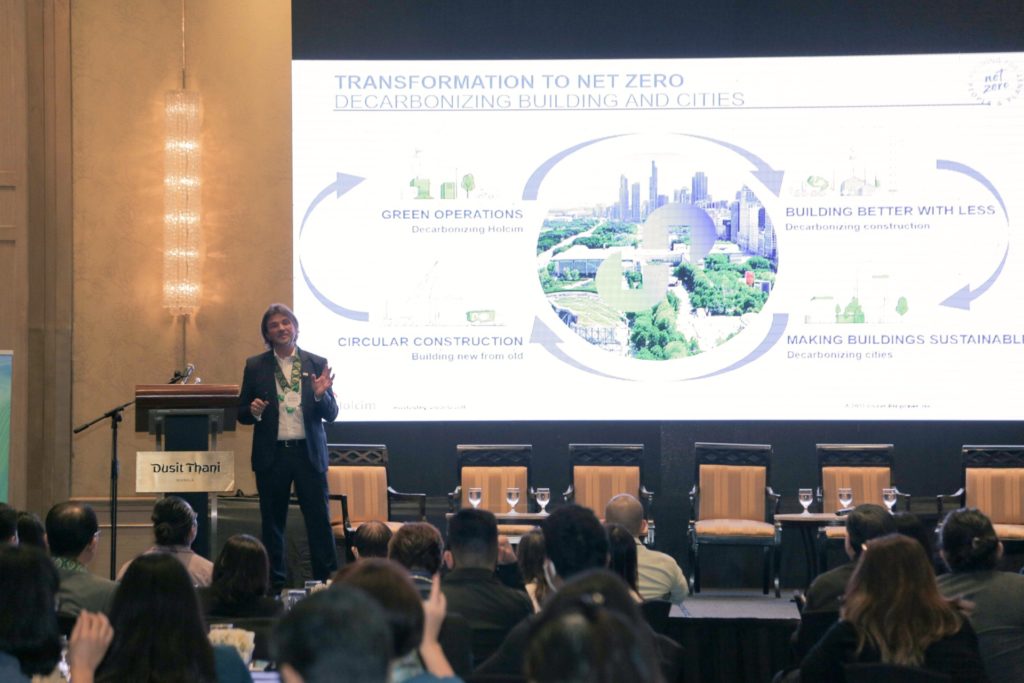Housing sustainability is becoming increasingly crucial in the Philippines as people begin to recognize the importance of living in an eco-friendly home. Not only does it help reduce our carbon footprint, but it also helps us save money on utilities and creates a healthier living environment.

One of the easiest ways to promote sustainability in your home is by using energy-efficient appliances. This means investing in refrigerators, air conditioners, and other household items that are designed to use less energy.
Holcim, one of the world’s leading suppliers of cement and aggregates, has recently released a statement reaffirming its commitment to decarbonizing construction and promoting affordable housing. As the global construction industry faces increasing pressure to reduce its carbon footprint, Holcim is taking bold steps to lead the way towards a more sustainable future. Through innovation and collaboration, Holcim is developing new solutions to reduce emissions, increase energy efficiency, and promote sustainable building practices. In this article, we will take a closer look at Holcim’s commitment to decarbonization and explore how the company is working to make affordable housing more accessible while minimizing its impact on the environment.
In their recent event, the company reiterated its readiness to support partners in decarbonizing construction and putting up affordable homes and called for cooperation to accelerate the shift towards more sustainable practices during key public forums.

Holcim Philippines President Horia Adrian Photo provided by Holcim:
Holcim Philippines President and CEO Horia Adrian was one of the keynote speakers during the Net Zero Building and Net Zero Summit Philippines last January 10, 2023. He emphasized the important role of the construction industry in reducing the country’s carbon emissions. He noted that building materials account for 30% of the carbon footprint of structures, so it is necessary for the industry to steadily shift towards alternatives that are better for the climate.
Adrian also explained that Holcim Philippines is committed to supporting partners in this transition and is accelerating sustainability initiatives from greening operations to expanding its eco-friendly offerings. Adrian said Holcim Philippines is digitalizing operations to raise the efficiency of production and logistics. The company is also using more alternative fuels and expanding its line of innovative blended cement that delivers equal to superior performance but with a lower cost to the environment.
“Holcim is committed to providing solutions for building more with fewer materials, new buildings using recycled materials from old structures, and more efficient buildings using smart design and materials. We are excited to work with partners in building greener, smarter, and for all in the Philippines to better contribute to the country’s progress,” he said.
Since 2015, Holcim Philippines has reduced its carbon footprint by 12% by producing more blended cement, replacing coal with qualified wastes as alternative fuels, and improving the efficiency of operations. The company’s carbon footprint reduction program is aligned with the Holcim Group’s net zero direction and the country’s Nationally Determined Contributions. Aside from its initiatives, the company is working with key stakeholders to encourage the consumption of low-carbon products to help reduce the footprint of the built environment.
Meanwhile, Holcim Philippines Chief Sustainability Officer Zoe Sibala shared the importance of new building materials and modes in constructing affordable houses during the ShelterTech Southeast Asia Community forum on Jan. 16, organized by the Terwilliger Center, the innovation unit of Habitat for Humanity.
Sibala explained that choosing the right cement can help build better affordable houses and shared the exciting building innovations from the Holcim Group, such as 3D building technology that the company can bring to the Philippines. She also invited affordable housing segment players to a conversation on new construction technologies and modes that can support the achievement of goals.
Why we should be mindful of our carbon footprint?
We all want to live in a healthy and sustainable world, but our daily habits may contribute to a large carbon footprint. Our carbon footprint is the amount of carbon dioxide and other greenhouse gases that are emitted through our daily activities, such as transportation, electricity use, and consumption of food and goods. While it may seem daunting to reduce our carbon footprint, it is essential to consider the long-term impact of our actions.
First and foremost, minimizing our carbon footprint can help slow down the effects of climate change. Climate change can lead to extreme weather patterns, rising sea levels, and animal and plant life changes. Reducing our carbon emissions can help mitigate these effects and promote a healthier planet.
Secondly, minimizing our carbon footprint can also lead to significant cost savings. Simple actions such as using energy-efficient light bulbs, reducing water usage, and carpooling can help lower our utility bills and transportation costs. In addition, by reducing our consumption of goods and opting for sustainable and reusable products, we can save money and reduce waste.
Lastly, minimizing our carbon footprint can lead to a healthier and more mindful lifestyle. We can promote better physical and mental health by making conscious choices about our daily habits. For example, walking or biking to work instead of driving can help us get more exercise and reduce stress levels.
Being mindful of our carbon footprint is crucial for the environment and can lead to significant cost savings and promote a healthier lifestyle. By taking small steps such as reducing energy usage, opting for sustainable products, and using public transportation, we can all positively impact the planet and lead a more sustainable lifestyle.






